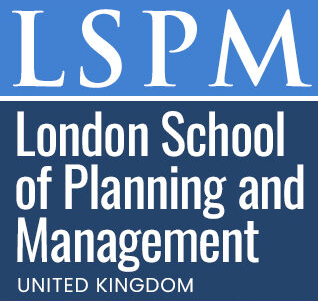Professional Certificate in Disaster Response Training for Teens
-- viewing now**Ready to handle emergencies?** This **Professional Certificate in Disaster Response Training for Teens** equips you with the knowledge and skills to respond effectively to various emergencies, both natural and man-made. This comprehensive training program covers essential topics like fire safety, disaster preparedness, first aid, and emergency communication.
4,474+
Students enrolled
GBP £ 149
GBP £ 215
Save 44% with our special offer
About this course
100% online
Learn from anywhere
Shareable certificate
Add to your LinkedIn profile
2 months to complete
at 2-3 hours a week
Start anytime
No waiting period
Course details
• <|im_start>|Why is disaster preparedness important?
• <|im_start>|The roles and responsibilities of disaster response teams
• <|im_start>|The difference between disaster preparedness and disaster response
**Module 2: Fire and Emergency Response** • <|im_start>|Understanding fire and its behavior
• <|im_start>|The principles of fire suppression and prevention
• <|im_start>|Responding to different types of fires
• <|im_start>|The role of emergency management in fire situations
**Module 3: Water and Environmental Safety** • <|im_start>|Understanding water sources and contamination
• <|im_start>|The principles of water rescue and survival
• <|im_start>|Responding to water-related emergencies and disasters
• <|im_start>|The role of environmental protection agencies in disaster response
**Module 4: Structural Fire and Building Collapse** • <|im_start>|Understanding the principles of structural integrity
• <|im_start>|Fire spread and its impact on buildings
• <|im_start>|Responding to structural fires and building collapses
• <|im_start>|The role of structural engineers and architects in disaster response
**Module 5: Medical and Public Health Response** • <|im_start>|Understanding the principles of medical care
• <|im_start>|Responding to medical emergencies and disasters
• <|im_start>|The role of paramedics, nurses, and other healthcare professionals
• <|im_start>|The importance of public health during disasters
**Module 6: Incident Command and Logistics** • <|im_start>|Understanding the Incident Command System (ICS)
• <|im_start>|The roles and responsibilities of different agencies involved in disaster response
• <|im_start>|Managing resources and logistics during disasters
• <|im_start>|The importance of communication and coordination in disaster response
**Module 7: Community Engagement and Disaster Preparedness** • <|im_start>|Understanding the importance of community involvement
• <|im_start>|Developing and implementing community disaster preparedness plans
• <|im_start>|The role of volunteers and community organizations in disaster response
• <|im_start>|The importance of disaster preparedness education and training
**Module 8: Legal and Ethical Considerations** • <|im_start>|Understanding legal responsibilities during disasters
• <|im_start>|Ethical considerations in disaster response
• <|im_start>|The role of legal professionals and ethics committees
• <|im_start>|The importance of accountability and transparency in disaster response
**Module 9: Advanced Topics in Disaster Response** • <|im_start>|Search and rescue techniques for different environments
• <|im_start>|Water rescue and survival skills
• <|im_start>|Urban search and rescue operations
• <|im_start>|The role of drones and unmanned vehicles in disaster response
**Module 10: Case Studies and Scenario-Based Learning** • <|im_start>|Analyzing real-world disaster scenarios and case studies
• <|im_start>|Developing critical thinking and problem-solving skills
• <|im_start>|Simulating disaster scenarios and practicing response techniques
• <|im_start>|Reflecting on lessons learned and improving disaster response skills
Career path
Professional Certificate in Disaster Response Training for Teens
```Entry requirements
- Basic understanding of the subject matter
- Proficiency in English language
- Computer and internet access
- Basic computer skills
- Dedication to complete the course
No prior formal qualifications required. Course designed for accessibility.
Course status
This course provides practical knowledge and skills for professional development. It is:
- Not accredited by a recognized body
- Not regulated by an authorized institution
- Complementary to formal qualifications
You'll receive a certificate of completion upon successfully finishing the course.
Why people choose us for their career
Loading reviews...
Frequently Asked Questions
Course fee
- 3-4 hours per week
- Early certificate delivery
- Open enrollment - start anytime
- 2-3 hours per week
- Regular certificate delivery
- Open enrollment - start anytime
- Full course access
- Digital certificate
- Course materials
Get course information
Earn a career certificate

